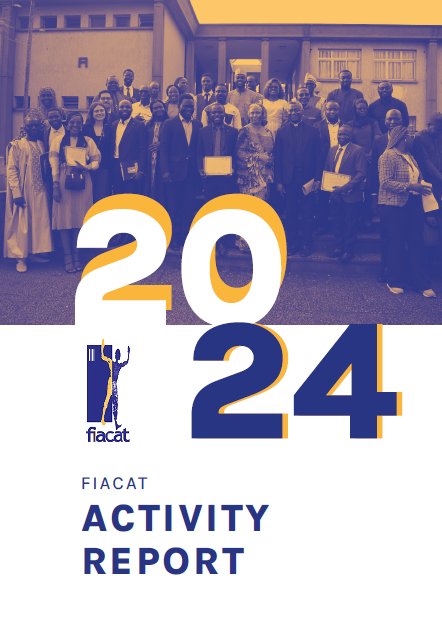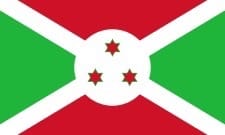In its Concluding Observations , the Committee called on Burundi to ensure the protection of citizens belonging to the “ethnic minority” by refraining from any public statement that could exacerbate ethnic tensions or incite hate. It called on Burundi to ensure its security forces used non -violent methods to control protests, and to drop any reprisals against dissenting civil society members.
It also urged the State to conduct impartial investigations into any allegations of killings, enforced disappearances and sexual violence at the hand of its security forces and the Imbonerakure militia. The Committee also demanded the investigation of suspected mass grave sites and the exhumation, analysis and identification of any bodies found there.
“The CAT has sent the Government a very strong message that the world is watching” said Dieudonné Bashirahishize, Vice -President of the East Africa Law Society and chairman of the coalition of lawyers of victims of international crimes (CAVIB). “Burundian authorities need to stop disregarding human rights and start collaborating with its civil society and the international experts.”
Following the authorities’ no -show halfway through the session, it also invited the Government to report back by October. In what is only a hardly veiled hint at Burundi’s lack of cooperation, the Committee gave the State two months to follow up by 12 October to respond and provide it with enough information to assess whether or not it had honored its obligations under the Convention Against Torture, invoking the “interrupted dialogue” and “exceptional and urgent character” of this special review.
These recommendations come as Burundi has been witnessing serious human rights violations since the controversial re -election of President Pierre Nkurunziza’s to a third term in April last year. After a failed coup attempt, a violent crackdown quashed mass protests, prompting the CAT to request that the State submits a special report on how it is fighting torture and ill treatment in the country.
After Israel and Syria, Burundi was the third country the UN torture watchdog has ever asked, pursuant to Article 19, paragraph 1 of the Convention, to submit a special report ahead of the scheduled four years. The Committee experts on July 28 started examining the situation in Burundi, based on information from the State’s own Special Report as well as on other publicly available documents, including a so -called “alternative” report submitted by national and international non -governmental organizations. At the initial July 28 session, the Burundian government delegation, led by Justice Minister Aimée Laurentine Kanyana, dismissed as exaggerated any torture allegations.
Historical no show
Then on 29 July, in an unprecedented move by any State party to the Convention, the Burundian delegation did not show up to provide its replies to the questions posed by the CAT after this preliminary examination. It instead sent the CAT a letter , saying it was “surprised” the session had focused on examining civil -society reports. The CAT then provided the State of Burundi a standard additional 48 hours in response to its request to have more time to investigate the allegations of the report. But at the time of writing no further information has been received.
A coalition of Burundian and international organizations had submitted a report denouncing the current Government’s use of arbitrary detention to repress the opposition, stating that SOS -Torture Burundi had counted 736 arbitrary arrests between December 2015 and 31 March 2016, while the OHCHR office in Burundi had counted 3,477 arbitrary arrests in the year to end of April 2016. It also said that since the President’s third term, it had counted more and more cases of enforced disappearances among members of civil society, former Burundi Armed Forces personnel or young demonstrators from neighborhoods of mainly Tutsi ethnicity.
Reprisals instead of answers
Among its 12 dense pages of recommendations, the Committee urged Burundi to drop its request to disbar four lawyers and human rights defenders who had contributed to the coalition’s report – which it also confirmed as a form of reprisals in a letter to the Government today – and urgently provide information on the measures taken to that effect.
These lawyers were namely Vital Nshimirimana, Chair of Forum pour la Conscience et le Renforcement de la Société Civile (FORSC) and President of the campaign “Halte au troisième mandat”, Armel Niyongere, President of ACAT -Burundi and Coordinator of SOS Torture campaign that provides regular monitoring reports about human rights abuses and torture cases, Mr. Bashirahishize, who belongs to the organization that requested the International Criminal Court to conduct investigations on crimes committed in Burundi, and Lambert Nigarura, President of the Burundian Coalition for the International Criminal Court and member of ACAT Burundi. This comes after a 29 July letter from the Burundian Government to the President of the Burundi Bar Association.
On 30 July, the UN Security Council announced it would deploy a UN police force of up to 228 officers to Burundi to help prevent further violence in the country. The Government of Burundi had earlier said it would not accept more than 50. The country witnessed in 1972 mass killings of Hutus by the Tutsi -dominated army, and in 1993, mass killings of Tutsis by the majority -Hutu population. President Pierre Nkurunziza is the former leader of a Hutu rebel group.
The organizations of the NGO coalition that contributed to the above -mentioned alternative report are: Action des Chrétiens pour l’Abolition de la Torture au Burundi (ACAT Burundi), Association Burundaise pour la Protection des Droits Humains et des Personnes Détenues (APRODH), campagne SOS -Torture / Burundi, Collectif des Avocats des Victimes de Crimes de Droit International (CAVIB), Coalition Burundaise pour la Cour Pénale Internationale (CB -CPI), le Forum de la Société civile pour le Monitoring des Elections (COSOME), Collectif pour la Promotion des Associations des Jeunes (CPAJ), Forum pour la Conscience et le Développement (FOCODE), Forum pour la Conscience et le Renforcement de la Société Civile (FORSC), Ligue Burundaise des Droits de l’Homme (Ligue ITEKA) and Réseau des Citoyens Probes.
They received support from OMCT, Centre pour les droits civils et politiques (CCPR), International Federation of Action by Christians for the Abolition of Torture (FIACAT), TRIAL International, and DefendDefenders (East and Horn of Africa Human Rights Defenders Project).
The report by the Burundian Government can be found here: http://tbinternet.ohchr.org/_layouts/treatybodyexternal/SessionDetails1.aspx?SessionID=1084&Lang=fr .




